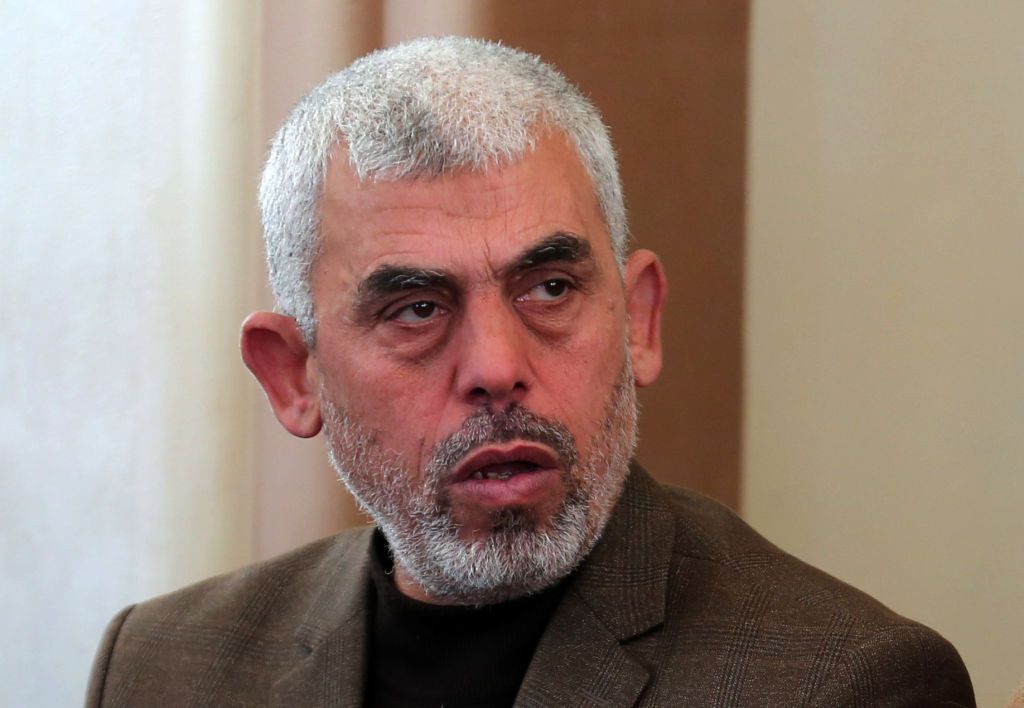Hamas Leadership: Israel Hamas Leader

The leadership of Hamas, the Palestinian Islamist movement, has evolved significantly since its founding in 1987. This evolution has been shaped by a complex interplay of internal power struggles, external pressures, and shifting political landscapes. This section explores the key figures and events that have defined Hamas’ leadership and its impact on the organization’s ideology and strategy.
Timeline of Key Figures and Their Roles
The leadership of Hamas has been characterized by a succession of prominent figures who have shaped its ideology and strategy. This section provides a timeline of key figures and their roles in shaping Hamas’ ideology and strategy.
- Sheikh Ahmed Yassin (1987-2004): Founder and spiritual leader of Hamas, Yassin played a pivotal role in establishing the organization’s core principles, including resistance against Israeli occupation and the establishment of an Islamic state in Palestine. He was assassinated by Israel in 2004.
- Khaled Meshaal (2004-present): Elected as Hamas’ political leader following Yassin’s assassination, Meshaal has sought to navigate the organization through a period of political and military challenges. He has been instrumental in developing Hamas’ international relations and securing support from regional powers like Iran.
- Ismail Haniyeh (2006-present): Elected as Hamas’ prime minister in 2006, Haniyeh has overseen the organization’s governance of the Gaza Strip. He has faced significant challenges, including a crippling Israeli blockade and internal divisions within Hamas.
- Yahya Sinwar (2017-present): Elected as Hamas’ leader in the Gaza Strip, Sinwar has been a key figure in the organization’s military operations against Israel. He has also been involved in efforts to rebuild the Gaza Strip after multiple Israeli military offensives.
Impact of Internal Power Struggles and External Pressures
Hamas leadership has been significantly impacted by internal power struggles and external pressures. These factors have influenced the organization’s decision-making, strategic priorities, and overall direction.
- Internal Power Struggles: Hamas has experienced several internal power struggles, particularly after the death of Sheikh Ahmed Yassin. These struggles have involved different factions within the organization vying for control and influence. The competition for leadership has often been characterized by competing ideologies, strategic visions, and personal ambitions.
- External Pressures: Hamas has faced significant external pressures from both Israel and the international community. Israel has launched multiple military operations against Hamas, targeting its leadership and infrastructure. The international community has imposed sanctions on Hamas and designated it as a terrorist organization. These pressures have forced Hamas to adapt its strategies and seek alliances with regional powers like Iran and Turkey.
Hamas Leadership and the Israeli-Palestinian Conflict

Hamas, a Palestinian Islamist political and militant organization, has played a significant role in the ongoing conflict with Israel. Its leadership has shaped the group’s strategies and tactics, influencing the course of the conflict for decades. Examining the role of Hamas leadership in the conflict provides insights into the complexities of the situation and the challenges to achieving a lasting peace.
The Role of Hamas Leadership in the Conflict
Hamas leadership has been instrumental in defining the group’s goals, strategies, and tactics in the conflict with Israel. The group’s founding charter explicitly calls for the destruction of Israel and the establishment of an Islamic state in all of historic Palestine. Hamas leadership has also played a key role in orchestrating military operations against Israel, including rocket attacks and tunnel warfare. In addition to military operations, Hamas leadership has also engaged in political negotiations, although with limited success.
Effectiveness of Hamas Tactics, Israel hamas leader
The effectiveness of Hamas’ tactics, both military and political, is a subject of ongoing debate. Hamas’ military operations have inflicted casualties and damage on Israel, but they have also led to retaliatory strikes by Israel that have resulted in significant civilian casualties in Gaza. The effectiveness of Hamas’ political negotiations has been hampered by the group’s refusal to recognize Israel’s right to exist and its insistence on the return of Palestinian refugees to their pre-1948 homes.
Approaches of Different Hamas Leaders
Different Hamas leaders have adopted varying approaches towards resolving the conflict. Some leaders, such as Khaled Meshaal, have been more focused on military operations, while others, such as Ismail Haniyeh, have shown greater willingness to engage in political negotiations. Despite these differences, all Hamas leaders have maintained the group’s core goal of establishing an Islamic state in all of historic Palestine.
Israel hamas leader – The ongoing conflict between Israel and Hamas has sparked international concern, with leaders from both sides engaged in a tense game of diplomacy and military posturing. While these negotiations unfold, event organizers in Birmingham can focus on creating a more visually appealing atmosphere for their gatherings with chair cover hire birmingham.
The contrast between the gravity of the situation in the Middle East and the simple act of dressing up chairs for a local event serves as a reminder of the wide range of human experience.
The conflict between Israel and Hamas has once again thrust the region into the global spotlight, highlighting the complexities of international relations and the urgent need for a peaceful resolution. Amidst the turmoil, it’s interesting to note the potential role of emerging technologies like ripple xrp in facilitating cross-border humanitarian aid and fostering economic stability, which could ultimately contribute to a more peaceful future for the region.
The potential of such technologies, if harnessed responsibly, could offer a glimmer of hope in the face of such deep-seated conflict.
